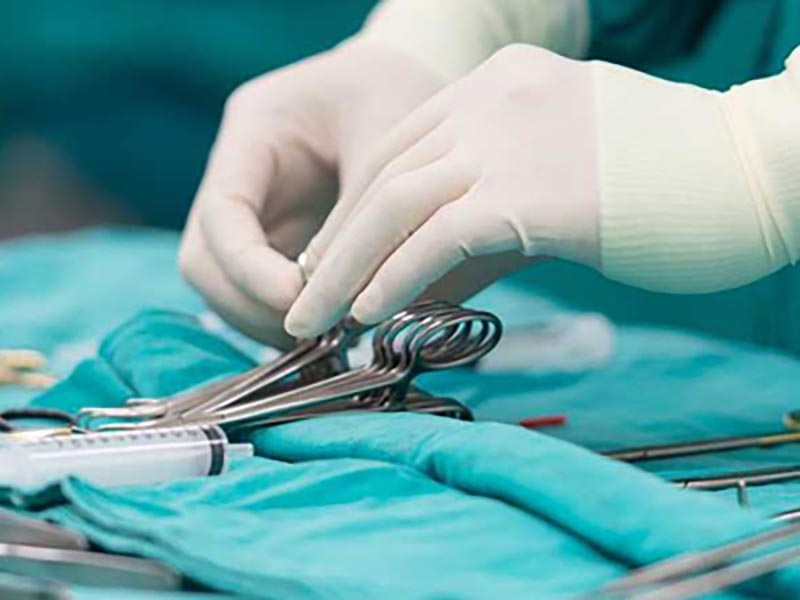
General surgeon
Watch our video about General surgeon
What Does a General Surgeon Do?
A General Surgeon is a medical specialist trained to diagnose, treat, and manage a wide range of surgical conditions affecting various systems in the body. Their expertise includes performing surgeries, managing pre- and post-operative care, and providing consultations to determine if surgical intervention is necessary. This specialist is well-versed in techniques ranging from traditional open surgeries to minimally invasive procedures such as laparoscopy.
At Clinic Consultation, our General Surgeons provide comprehensive care with a focus on patient safety and successful outcomes. They collaborate with other specialists to ensure holistic treatment, catering to conditions that may require multidisciplinary attention. Their role extends beyond operating rooms, involving critical decision-making to guide patients through complex medical situations.
What Conditions Does a General Surgeon Treat?
A General Surgeon addresses a variety of conditions, including but not limited to:
Appendicitis
Inflammation of the appendix requiring urgent surgical removal to prevent complications like rupture.Hernias
Protrusion of an organ or tissue through a weak spot in the abdominal wall, often repaired through minimally invasive techniques.Gallstones
Hardened deposits in the gallbladder that may cause pain and require removal of the gallbladder (cholecystectomy).Breast Disorders
Conditions like benign lumps or breast cancer often require surgical biopsy or mastectomy, handled with precision and care.Diverticulitis
Infections or inflammation of small pouches in the digestive tract, sometimes needing surgery for severe cases.Thyroid Disorders
Enlargement, nodules, or cancer of the thyroid gland, often necessitating partial or total removal of the gland.Skin and Soft Tissue Lesions
Removal of benign or malignant growths such as cysts, lipomas, or skin cancers, often performed as outpatient procedures.
How Can a General Surgeon Help?
A General Surgeon not only performs surgeries but also helps in diagnosing complex cases where non-surgical treatments are insufficient. Their intervention is crucial for acute emergencies such as appendicitis or intestinal blockages, as well as for planned surgeries like hernia repairs.
Beyond surgical care, they guide patients on managing their conditions through lifestyle changes, medication, and preventive measures. At Clinic Consultation, General Surgeons aim to empower patients with knowledge and confidence to make informed decisions about their health.
What Tests Does a General Surgeon Request?
Before planning any treatment, General Surgeons rely on diagnostic tests to confirm conditions and assess risks. Common tests include:
Ultrasound
Visualises organs like the gallbladder and liver to detect stones, cysts, or abnormal growths.CT Scan (Computed tomography)
Offers detailed cross-sectional images to assess internal injuries or tumours.MRI (Magnetic Resonance Imaging)
Provides high-resolution imaging for conditions affecting soft tissues and organs.X-Rays
Evaluates bone fractures, lung conditions, and other structural issues.Blood Tests
Helps identify infections, monitor organ function, and assess overall health before surgery.Endoscopy
A minimally invasive procedure to examine the digestive tract for ulcers or blockages.Biopsy
Involves the removal and examination of tissue to diagnose cancer or other abnormalities.
When Should You See a General Surgeon?
It is crucial to know when to consult a General Surgeon. Here are seven key situations:
Persistent Abdominal Pain
Especially if accompanied by fever, vomiting, or changes in bowel habits, as it could indicate appendicitis, gallstones, or a hernia.Lumps or Growths
Any noticeable lump under the skin, particularly if growing or painful, should be evaluated for potential removal or biopsy.Chronic Digestive Issues
Long-term bloating, severe constipation, or bleeding in the stool may require surgical evaluation for conditions like diverticulitis or bowel obstruction.Unexplained Weight Loss
Combined with fatigue or abdominal discomfort, this may signal underlying conditions needing further investigation.Wound Healing Problems
Non-healing wounds or infections might require surgical intervention, especially in diabetic or immune-compromised individuals.Recurrent Heartburn or Acid Reflux
Persistent symptoms despite medication could indicate hiatal hernia or other complications that might need surgery.Post-Surgical Complications
Issues like pain, infection, or swelling after previous surgeries need immediate attention from a surgeon.
How to Prevent Diseases Related to General Surgery
Prevention involves maintaining a healthy lifestyle, including a balanced diet, regular exercise, and avoiding smoking or excessive alcohol consumption. Early detection is critical, so routine check-ups and screenings are highly recommended. Addressing minor health issues promptly can prevent the need for extensive surgeries.
What to Ask a General Surgeon During the First Consultation
Prepare a list of questions to make the most of your appointment:
- What are the possible treatment options for my condition?
- Is surgery the only solution, or are there non-surgical alternatives?
- What are the potential risks and benefits of the recommended procedure?
- How should I prepare for the surgery?
- What will the recovery process look like?
- Are there lifestyle changes I should adopt to improve my condition?
- How will follow-up care be managed post-surgery?
At Clinic Consultation, our General Surgeons are available to address your concerns with expertise and care. Book your online appointment today and take the first step towards better health.
Click here to schedule an appointment online